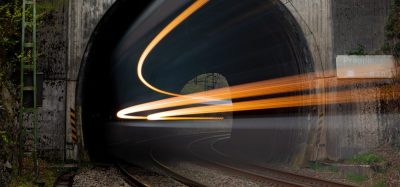Making use of digital solutions to safeguard rail’s future
Posted: 11 February 2020 | Stephanie Klecha | No comments yet
Stephanie Klecha, Head of Digital Services at Porterbrook, speaks to our Editor, Craig Waters, with her views on making rail more attractive for passengers, data-sharing, the importance of empowering the workforce, and how industry collaboration is key to rail’s future success.


Has there been a standout project to have pushed the use of digital technology in rail that you have admired, and why?
Something that’s quite simple and perhaps wouldn’t naturally spring to mind for many people when asked this – the recent launch of the Trainline app that’s enabled e-ticketing, which, as a passenger myself, has made a difference to my world. They’ve successfully delivered a solution for passengers that’s simple to use, but, behind-the-scenes, the technological advances to make that happen are really quite impressive.
As a passenger, the end-user, we want something that makes our lives easier and is a more optimal use of time, and I think that’s what the Trainline has delivered. So, I think that’s a good demonstrator of what you can do with digital solutions.
What do you consider to be the main hurdles that the rail sector will need to overcome in the future as it strives to become more digitally advanced?
I am confident we can deliver digital solutions with insightful analytics. But, if you don’t empower or train the workforce to do something with that data, it will have no impact.
I think there are two things. The first is data-sharing. I think there’s a natural reluctance to share data, maybe quite rightly, but also, sometimes, it’s not fully based on facts. It’s how we approach that as an industry to make people more willing to share data, safe in the knowledge that there are rules of engagement in place, and it’s not going to be abused. And then also the logistics of that; standardised platforms where data is in a format or a transfer mechanism such that it’s easy to plug and play data and analytics streams.
I am confident we can deliver digital solutions with insightful analytics. But, if you don’t empower or train the workforce to do something with that data, it will have no impact.
We still have a long way to go to mobilise the right people with the required skillsets, and I think this is a big challenge to overcome. I think that the cultural and skills change is going to be one of the biggest areas we need to address as an industry.
To what extent do you think the railways are under threat by other modes of public transport that are perhaps more digitally advanced? What do you think rail must do to safeguard its future?
I think there’s clearly a high demand for rail, but I completely agree that other modes of transport are more digitally advanced. I think, as an industry, we need to focus more on the passenger experience. I’ve been in focus groups, listening to passengers to understand what they want. Quite simply, one theme is that they want rail to be an experience, rather than a transactional thing they endure. We need to focus on seamless and connected journeys which make enjoyable and efficient use of our passengers’ time.
What digital trends or emerging technology do you think will come to the forefront of rail in the next 12 months?
I think a critical thing for the industry is collaboration across various areas.
The next 12 months will be key – although it is generally a short timescale – I think the real movements will be behind-the-scenes. Remote condition monitoring will be a focus, as we need our assets to perform better. Our challenge is to ensure that our assets are safe, reliable, accessible and available. I’m hoping that we’re going to see greater technology roll out and investment in data analytics to support that.
I think a critical thing for the industry is collaboration across various areas. Incentivising people to work together in a more cohesive manner, rather than attributing blame, is something that is going to be pivotal.
Another challenge is greater understanding of the governance around data ownership, access and use. Those who generate the data or own it may not necessarily be the people who would benefit from it.
How do you see rail evolving? What do you think the future of rail will look like?
There’s a lot of talk around shared incentives and the benefits throughout the supply chain. I’d like to see actions from this, because it’s going to be a long journey to realise. We’re all trying to drive towards a common goal, rather than the political silos that we are currently sat in. I think this is going to be critical and I’m hoping that some of that will come up with the Williams Review. We then need to see that cascaded into industry, so that the supply chain is working towards the same targets as the train operators; getting trains to platforms on time.
Our standards are very much several decades old and, unless we change our ways in a responsive and fast way, we will not be able to utilise a lot of technology because the standards will stipulate that we still must use old archaic methods. So, we need to be agile and responsive to change in a safe and timely manner so that these elements don’t fall by the wayside – not because they’re not useful, but because we can’t apply them. We need to move forward, and I think collaboration is going to be the key to achieving this.
Why was it important for you to attend Digital Rail Revolution 2019?
Seeing the attendee list indicated that there was going to be a strong networking opportunity for me.
I joined Porterbrook in June 2019 with a remit to develop our digital strategy. As a rolling stock owner and asset manager, we must continuously develop our business model to remain current and market leading. Attending the event was to help me keep abreast of what’s going on within the various sectors of the industry. It’s important that I understand the supply chain capability, what’s motivating our passengers and what Network Rail’s perspective is, to see how it all knits together.
Stay Connected with Global Railway Review — Subscribe for Free!
Get exclusive access to the latest rail industry insights from Global Railway Review — all tailored to your interests.
✅ Expert-Led Webinars – Gain insights from global industry leaders
✅ Weekly News & Reports – Rail project updates, thought leadership, and exclusive interviews
✅ Partner Innovations – Discover cutting-edge rail technologies
✅ Print/Digital Magazine – Enjoy two in-depth issues per year, packed with expert content
Choose the updates that matter most to you. Sign up now to stay informed, inspired, and connected — all for free!
Thank you for being part of our community. Let’s keep shaping the future of rail together!
Related topics
Apps, Big Data, Digitalisation, Passenger Experience/Satisfaction, The Workforce








